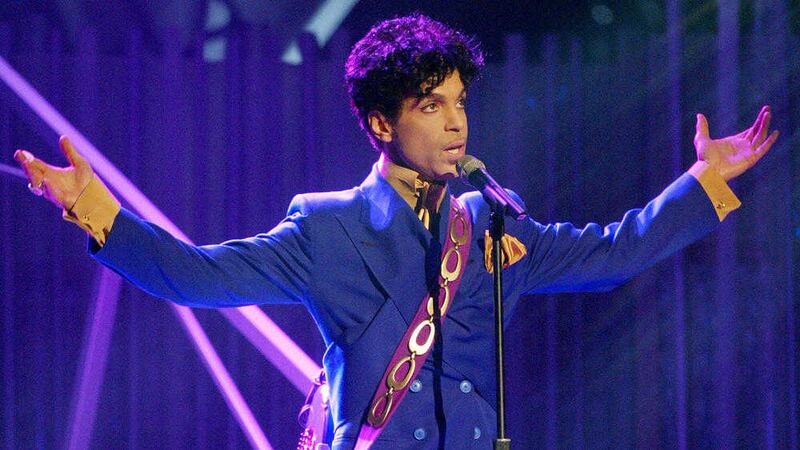WERE you shocked by the recent sudden death of the rock legend Prince aged just 57? In a career that spanned more than 40 years, he recorded 30 albums, sold 100 million copies, and penned over 1,000 songs.
When he wasn’t writing for himself, he dashed off songs that were made famous by other artists, including ‘Nothing Compares 2U’ for Sinéad O’Connor and ‘Manic Monday’ for the Bangles.
But for a man who wrote so much music, it now appears that one thing he didn’t write was a will. When the accountants totted everything up, they found that his estate, all his wealth and assets, were valued at around $300 million at the time of his death.
He has a full sister and five half-siblings, plus a new half-sister who has now popped out of the woodwork to lodge a seventh claim for a share. Hence the old adage: “Where there’s a will, there’s a relative.”
It has been pointed out, and quite reasonably, that the reason he left no will was that he wasn’t planning on dying just yet. He simply hadn’t got around to it. What is certain is that he has left what the lawyers are calling ‘one hell of a mess’ that could tie his estate lawyers up for years, while they try to unravel and value his royalties, existing assets, and future revenues from his recordings.
Only one thing boosts album sales more than going on a major concert tour, and that is if you pop your clogs. Prince’s music has been literally flying out the door (or over the download lines) in the three weeks since his death.
Most of us don’t have the problem of being multi-millionaires, but there are still many good reasons to think about a will, and not all have to do with money. The first reason is the obvious one: you need to record what should happen with your estate when you die.
What you leave must be passed on in an orderly fashion to your loved ones, because as the man said, there’s no such thing as ‘the richest man in the graveyard.’
Your will is a clear statement of who you want to inherit any wealth or other assets you leave behind. You can put on record exactly who gets what, be it money, property, valuables - even pets!
By providing specific instructions, your will can also prevent unnecessary squabbles between family members, especially where two parties feel they are entitled to a particular item on asset you have left.
If, on the other hand, you die with no will in place, you are deemed to be ‘intestate’. The Law of Intestacy takes over, and the state steps in to distribute your assets.
Your will can also mean safety and security for your children, if they are below the legal age to live alone. In your will you can appoint them guardians of your choice.
If you fail to do so, the authorities will make those decisions on your behalf, and could appoint different guardians to the ones you would have chosen. This could be very distressing for your children at a time when they are already distressed enough.
Another aspect involving the children is that you can use your will to put arrangements in place that will dictate how any money or assets you are leaving specifically to them are passed down. This gives you better control, as you can dictate the terms of how and when they receive the money.
Putting controls on the distribution of an inheritance is particularly useful for securing the welfare and financial provision for disabled children. Another advantage of having a will in place is that your family gains access to your assets much more quickly and easily than if you do not.
If you have no will, or your family are unaware of any will you have made, they might end up funding a search to see if solicitors or anyone else has one on file for you. If that reveals that you died intestate, your family can be left going through the courts to gain control of your estate, which can be a lengthy process.
In the meantime, they are likely to have to pay your funeral expenses out of their savings. Where a known will is in place, however, they simply go through the process of probate, which is a quicker and easier process to receive their inheritance according to your wishes.
:: Michael Kennedy is an independent financial adviser and pensions specialist, and can be contacted on 028 71886005








